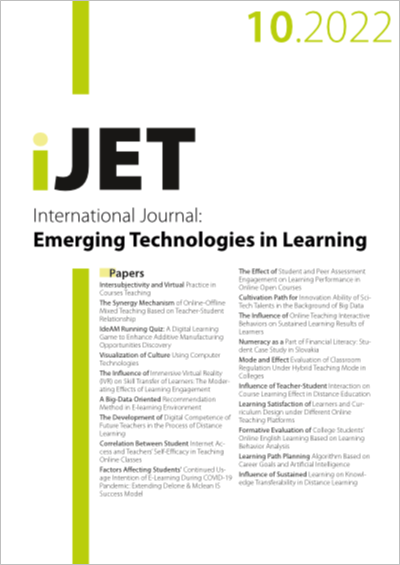The Effect of Student and Peer Assessment Engagement on Learning Performance in Online Open Courses
DOI:
https://doi.org/10.3991/ijet.v17i10.30931Keywords:
online open courses, student engagement, peer assessment engagement, learning performanceAbstract
A large number of online education platforms in China has greatly facilitated the development of online education by allowing people to access quality educational resources at all times. Enhancing student engagement can effectively realize their learning efficiency and improve the overall learning process performance and final learning performance. Peer assessment generally requires learners to engage in a range of cognitive activities, such as critical thinking, monitoring, and reflecting, and has a positive and significant contribution to learning performance. In this study, an argumentative model of student engagement affecting learning performance was constructed, and the role of peer assessment engagement as a moderating variable in student engagement involving learning performance was analyzed. Results show that behavioral engagement and cognitive engagement can significantly contribute to learning performance. Peer assessment plays a moderating role in learning engagement, significantly contributing to learning performance. The average value of students’ final learning performance is significantly higher than that of midterm performance. Conclusions are valuable for improving the accuracy of peer assessment results, promoting learners’ reflection on learning, and constructing online peer assessment models based on learning behavior data.
Downloads
Published
How to Cite
Issue
Section
License
Copyright (c) 2022 Muchen Ma, Chaoxing Luo

This work is licensed under a Creative Commons Attribution 4.0 International License.


